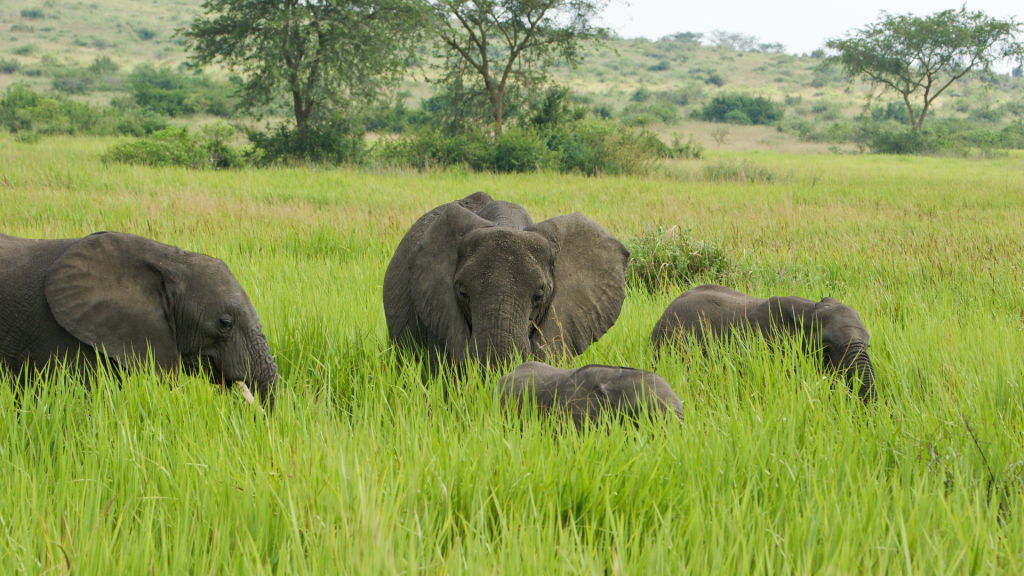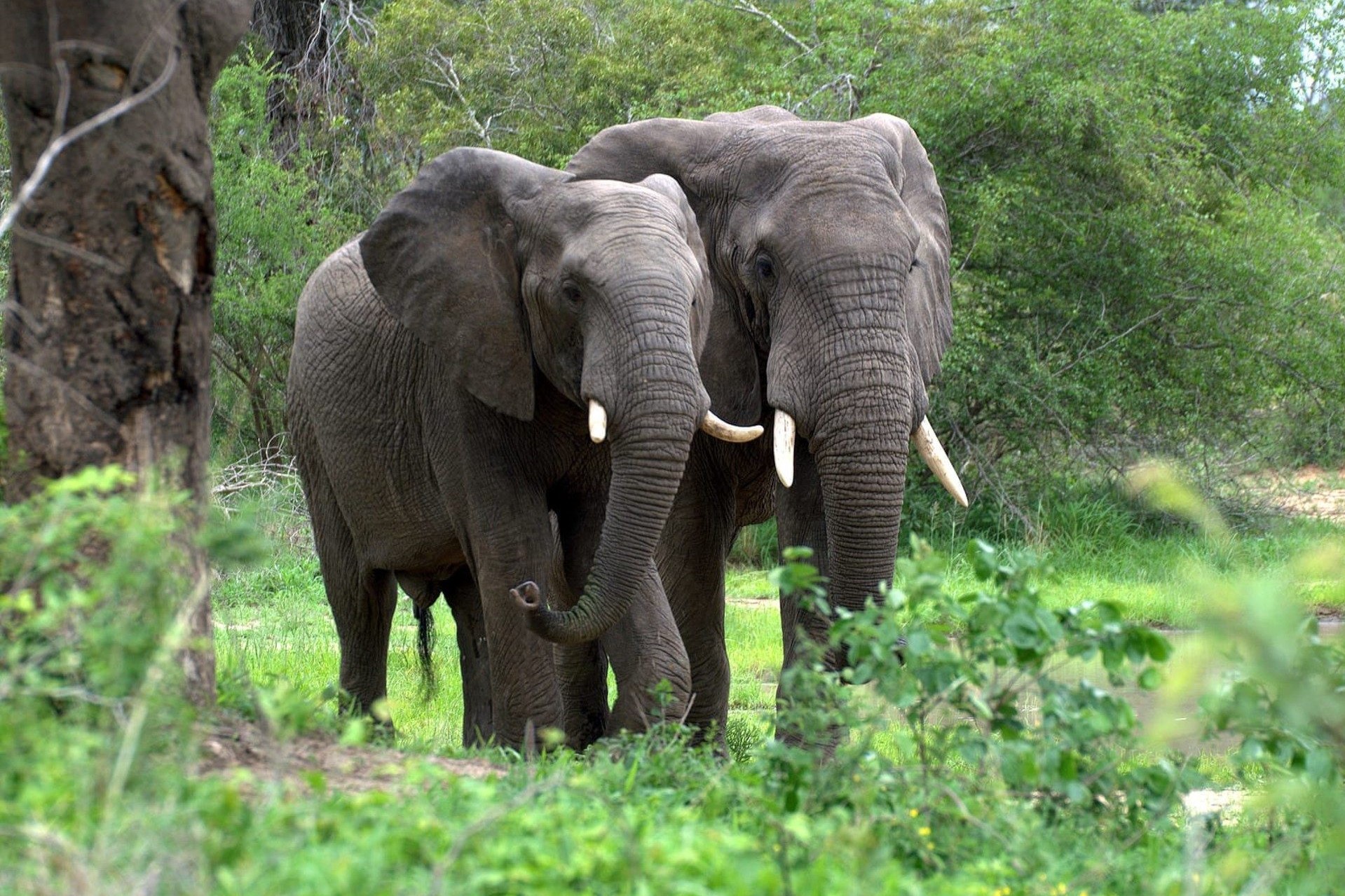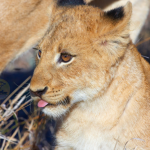10 Interesting Facts About African Elephants.
Facts About African Elephants; African Elephants are among the most remarkable creatures on Earth, with their enormous size, intellectual capacity, and social behavior. Due to their huge size, these gentle giants command awe and wonder wherever they move. This is a list of ten intriguing facts that set apart the unique characteristics and lives of African elephants.
1. African Elephants Are Earth’s Largest Land Animals
African elephants are the largest land animals on Earth: the savanna/bush elephant-actually one of two African elephant species-reaches 6,000 kilograms (13,000 pounds) in weight and 4 meters (13 feet) at the shoulder. Their large size not only makes them stand out among other land animals but also puts them in a position to interact with the earth, thereby making their changes to the landscapes they roam in, such as toppling trees and opening pathways.
2. There Are Two Species of African Elephants
There are two recognized species of African elephants: the African savanna/bush elephant, Loxodonta africana, and the African forest elephant, Loxodonta cyclotis. Savanna elephants are larger and found in open grasslands, while forest elephants are smaller, with straighter tusks, in dense rainforests. The two species differ in size, habitat, and even DNA, though both are key players in maintaining biodiversity in their respective habitats.
3. Elephants Have an Ultra-Long Gestation Period
Pregnancy in an elephant goes on for almost 22 months, which is long for a land mammal. This extended gestation period allows the calf to be fully developed at birth and relatively prepared for survival. Newborns already weigh about 120 kilograms (265 pounds) at birth and within hours can already stand and walk-a very useful skill which shall serve to keep them up with the family and away from predators.
4. Their Ears Can Regulate Body Temperature
African elephants live in hot climates, and their large ears work like natural air conditioners. The thin and wide shape of the ears contains a network of blood vessels that help cool their body. While an elephant flaps its ears, it further enhances the cooling effect: the air passing over the blood vessels cools down the animal’s body temperature and allows it to stand unusually high heat.
5. Elephants Have a Highly Developed Social Structure
African elephants are highly social animals living in tight, matriarchal family groups, typically led by the oldest female. This matriarch leads her group through migrations, sources of food and water, and even conflicts with other animals or humans. Knowledge of the matriarch about migration routes and water sources becomes very important in conditions of drought and therefore underlines the importance of close family bonds for survival.

6. They Are Known for Their Intelligence and Memory
The saying “an elephant never forgets” is based on some truth. Elephants have one of the strongest memories among animals. This memory enables them to remember water holes, migration routes, and even friendliest or hostile encounters with other species. Their brains are large and they do show problem-solving skills, empathy, self-awareness and even signs of mourning when a family member dies.
7. Elephants Use Tools and Communicate in Complex Ways
Of all the animals in the world, African elephants are among the few known to use tools. They will swat flies and itch themselves with branches and even dig pools for water. They have also been recorded making a range of sounds: low-frequency rumbles that can travel for several kilometers, plus body language, touch, and scent to convey messages. Such behaviors underpin the complexity of elephant communication and social interaction.
8. Their Tusks Continue to Grow Throughout Their Lives
Elephant tusks are elongated incisors, which are made of ivory. This growth in tusks is continuous and never stops throughout an elephant’s life. Most adult males have longer tusks than the female ones. These tusks are used from digging for water and salt to stripping bark off trees and self-defense. Unfortunately, tusks make elephants a target of illegal poaching because ivory still remains in high demand.
9. Elephants Play a Key Role in Their Ecosystems
African elephants are what is called a “keystone species,” meaning that they have a disproportionately large impact on their environment relative to their numbers. This makes them very influential in the environment, as they help change the physical landscape for other species. For instance, the water holes that elephants dig during dry seasons often become lifesaving resources for many other animals.
10. They also face severe threats from both poaching and habitat loss.
These animals, despite their ecological importance, face huge threats. Poaching for ivory and habitat loss due to agricultural expansion and human settlement have drastically reduced their numbers in the past century; In this regard, conservation efforts are underway; governments work hand in hand with local communities and conservation organizations in the protection of elephant habitats and curbing poaching. However, in order for them to survive long-term, continuous support and sustainable practices will be required.

Our Best Safaris to See Elephants in Africa.
22 Days Best of Uganda Wilderness Adventure
18 Day Exploring Uganda Safari
15 Day Gorillas-Chimpanzee and Big 5 Safari
15 Day Uganda-Kenya-Tanzania Safari Adventure
14 Day Uganda-Rwanda Wildlife and Primates Safari
14 Days Uganda and Kenya Wildlife Safari
10 Day Uganda Wildlife and Primates Safari
10 Day Highlights of Uganda Safari
7 Day Kenya Wildlife Safari Tour
Remarks on 10 Facts About African Elephants.
It is just magnificent to consider that everything in the life of African elephants, from family bonding to being ecosystem engineers, speaks to their relevance in the African wilderness. With such flair for intelligence, strength, and social complexity, it calls for admiration and care by all. This calls for a need to create conservation and awareness that will help ensure future generations continue to marvel at the magic of African elephants in the wild.
The next time you go on safari in Africa, remember that every elephant sighting is peering into the heart of the continent, a reminder of one of Earth’s most iconic animals and a powerful legacy that endures.











